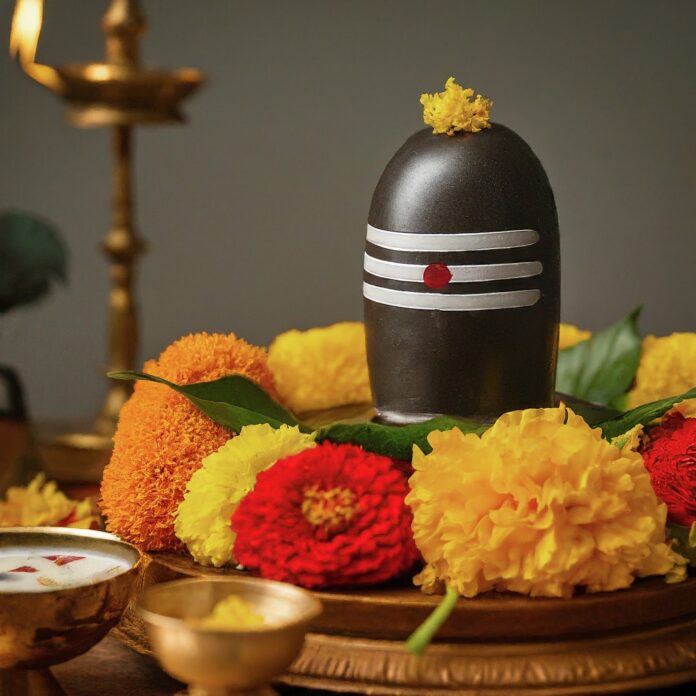The imminent arrival of Maha Shivratri heralds a night of profound devotion and fasting among the ardent followers of Lord Shiva.
Recognized as one of the paramount Hindu festivals, this grand celebration unfolds with exuberance and enthusiasm throughout the nation, marked by nuanced traditions.
Devotees on this auspicious day engage in a day-long fast, meditative practices, temple visits, recitation of mantras, and the performance of rituals associated with the worship of Lord Shiva.
This festival serves as a moment for devotees to purify their body, mind, and soul, fostering new beginnings.
The observance of a day-long fast during Mahashivratri holds immense spiritual significance, equated with a year-long devotion to Shiva, capable of facilitating salvation and the absolution of sins. Such dedicated fasting is believed not only to contribute to inner peace and spiritual progress but also aids in achieving worldly goals.
Maha Shivratri 2024 Date
Maha Shivratri in 2024 is set to take place on March 8, falling on a Friday. Positioned as the most crucial among the monthly Masik Shivratris, this festival occurs on the fourteenth day of the dark (waning) half of the lunar month of Phalguna or Magha, just a day before the new moon.
History of Maha Shivratri
The historical tapestry of Maha Shivratri is woven with diverse legends, ranging from the sacred union of Shiva and Parvati to the narrative of Lord Shiva consuming the Halahala poison. Each legend contributes depth to the profound significance of this auspicious observance.
One such legend recounts Maha Shivratri as the night when Shiva performed the celestial dance of creation, preservation, and destruction.
Another popular tale involves Lord Shiva consuming the Halahala poison produced during Samudra Manthan to safeguard the world, resulting in his neck turning blue and earning him the name Neelkantha.
However, the most prevalent legend revolves around Goddess Parvati’s relentless penance, in various incarnations, to win the affection of Lord Shiva.
Finally, impressed by her devotion and perseverance, Shiva agreed to marry Parvati and this divine union is celebrated as Maha Shivratri.
Significance of Maha Shivratri
The profound significance of Maha Shivratri in 2024 extends beyond common understanding. Engaging in fasting during this sacred occasion serves as a transformative practice, aiding in the transcendence of ignorance and the attainment of self-realization.
Through sincere reflection on its true essence, the soul can liberate itself from the cyclical pattern of birth and death, ultimately leading to salvation.
The observance of this fast with genuine dedication holds the potential to cleanse one’s spirit, absolving past sins and dispelling negative karma. It serves as a catalyst for a rejuvenated direction in life.
Thus, Maha Shivratri becomes a valuable opportunity for introspection, allowing individuals to renew their connection with the divine and foster spiritual evolution.
Celebration of Maha Shivratri 2024
Maha Shivratri’s celebration in 2024 is a widely embraced and cherished event across the nation, resonating with the chanting of “Om Namah Shivay” that echoes throughout the night.
This creates an ambiance saturated with devotion, spirituality, and divine energy. Hindus from Kashmir to Tamil Nadu mark this festival with distinctive traditions and unwavering dedication.
From vibrant melas and jagratas to observing day-long fasts, devotees express their prayers and connection with Lord Shiva in unique ways. It is a common practice for devotees to engage in night-long prayers and participate in jagrans, believed to dispel darkness and ignorance.
The offerings to Lord Shiva during this day include belpatra, dhatura, milk, fruits, and sweets, as devotees maintain a day-long fast from sunrise to sunset. The rich cultural significance of Maha Shivratri is documented in ancient texts such as Skanda Purana, Linga Purana, and Padma Purana.
Different regions manifest their devotion through diverse customs. In Odisha, Jagara events are organized, while Gujarat hosts the Maha Shivratri mela. Punjab witnesses the organization of Shobha Yatras by various Hindu organizations.
Unmarried girls in Odisha and West Bengal observe a fast during Maha Shivratri, seeking a suitable husband and a blissful married life. The festival thus unfolds as a tapestry of diverse celebrations, reflecting the unique cultural fabric of each region.
Additionally, you can chant SHIV TANDAV STOTRAM.
If you like our work then please Donate to us so that we can keep posting content regularly.
Note: We don’t make any guarantees if the above-stated facts are not correct. If you think any information provided by us is wrong then contact us.

